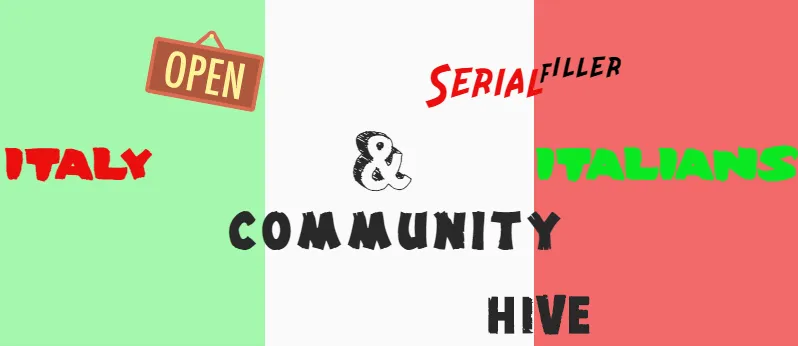

Yesterday it was leaked, or rather the news was anticipated that the redundancy fund will be extended until 31 December 2020.
The cig is an instrument that the state offers businesses to avoid redundancies.
To make it short and to simplify, we can say that the State, through INPS, pays the employees of companies that apply for the IGC, relieving them of this cost. A fee of about 80% that allows to stop redundancies and to curb an economic collapse in situations of serious emergency, be it systemic or linked to a specific sector or specific companies.
It is an instrument of great social and economic impact, which has always been widely used but with reasonable numbers.
With the covid emergency, numbers have increased a hundredfold and demands have become massive. About 10 million employees impacted.
The state, beyond the red tape, has made an abnormal effort to preserve the work.
Companies, for their part, have made... companies.
Some have advanced 1-2 months' salary while waiting for the IGC to arrive, others could not.
The first ones did what they did both for altruism and humanity towards the employees, but also because, it must be said, it was convenient to use them.
It is no coincidence that many companies that had ample liquidity decided to use the IGC anyway. Some because they thought about the future and perhaps used those resources to keep employees safe economically, using the liquidity to create new projects and new ways of understanding the work. Others have requested the IGC simply because when there is free money better to take it, regardless, perhaps asking the worker to do some work in the meantime, given the enormous time available.
Those companies that have asked for the IGC without anticipating it are instead those companies or young people, and therefore without liquidity, or bad.
The former have all the excuses in the world. The second are part of a dominant modus operandi of companies, but also of private citizens, Italian and Western, in general.
To simplify:
If you're a company that doesn't have 1-2 months' salary to issue in case of emergency then your management is simply bankrupt and ridiculous.
It's like having a fixed salary for years and having a few euros in the bank. Of course any emergency, a health problem, would involve the risk of default.
But what often struck me was the ability of companies to turn the tables, both to the state and to their employees.
In the first case, we dwelt on the bureaucracy rather than the unprecedented state initiative. Thanks to it, millions of people were able to preserve their jobs for at least 1 year. In a period where for 2 months 70% of the companies did not produce, it is a commendable result.
In the second case we were faced with quite underhand propaganda.
Many companies, after having seen the beauty of the IGC, have taken credit for it.
A lot of employees have been listening to a lot of speeches about how good the companies were at keeping them from losing their jobs.
I find it bleak and unfortunately very common from the direct and indirect testimonies received.
For once, literally, we should give Caesar what is Caesar's, and stop taking the successes and dumping the failures.

Nella giornata di ieri è trapelata, o meglio è stata anticipata la notizia per cui la cassa integrazione in deroga sarà allungata fino al 31 dicembre 2020.
La CIG è uno strumento che lo stato offre alle imprese per evitare licenziamenti.
Per farla breve e per semplificare, possiamo dire che lo Stato, attraverso l'INPS, paga i dipendenti delle aziende che richiedono la CIG, sgravandole di questo costo. Un corrispettivo di circa l'80% che consente di bloccare i licenziamenti e frenare un crollo economico in situazioni di grave emergenza, sia essa sistemica o legata ad un determinato settore o specifiche aziende.
E' uno strumento di grande impatto socio economico, che è stato sempre molto usato ma con numeri ragionevoli.
Con l'emergenza covid i numeri si sono centuplicati e le richieste divenute massive. Circa 10 milioni i dipendenti impattati.
Lo stato, aldilà delle lungaggini burocratiche, ha fatto uno sforzo abnorme per preservare il lavoro.
Le aziende dal canto loro hanno fatto...le aziende.
Alcuni hanno anticipato 1-2 mensilità in attesa che la CIG arrivasse, altri non hanno potuto.
I primi hanno fatto quel che hanno fatto sia per altruismo e umanità nei confronti dei dipendenti, ma sia perchè, va detto, conveniva servirsene.
Non è un caso che molte aziende che avevano ampia liquidità hanno comunque deciso di avvalersi della CIG. Alcune perchè hanno pensato al futuro e hanno magari utilizzato quelle risorse per tenere i dipendenti al sicuro economicamente, utilizzando la liquidità per creare nuovi progetti e nuovi modi di intendere il lavoro. Altre hanno richiesto la CIG semplicemente perchè quando ci son soldi gratis meglio prenderli, a prescindere, magari chiedendo al lavoratore di fare comunque qualche lavoretto nel frattempo, visto l'enorme tempo a disposizione.
Quelle aziende che hanno chiesto la CIG senza anticiparla sono invece quelle aziende o giovani, e dunque senza liquidità, o scellerate.
Le prime hanno tutte le scuse del mondo. Le seconde rientrano in un modus operandi dominante delle aziende, ma anche dei privati cittadini, italiani e occidentali, in generale.
Per semplificare:
Se sei un azienda che non ha in cassa 1-2 mensilità da emettere in caso di emergenza allora la tua gestione è semplicemente fallimentare e ridicola.
E' come avere uno stipendio fisso da anni e avere pochi euro in banca. Ovvio che una qualsiasi emergenza, un problema di salute, comporterebbe il rischio di default.
Ma quello che spesso ha colpito è stata la capacità delle aziende di rigirare la frittata, sia verso lo stato che verso i dipendenti.
Nel primo caso ci si è soffermati sulla farragginosità della burocrazia piuttosto che sull'iniziativa statale senza precedenti. Grazie ad essa milioni di persone hanno potuto preservare il lavoro per almeno 1 anno. In un periodo dove per 2 mesi il 70% delle aziende non ha prodotto, è un risultato encomiabile.
Nel secondo caso ci siamo trovati di fronte ad una propaganda abbastanza subdola.
Molte aziende, dopo aver sciorinato la bellezza della CIG, se ne sono attribuiti il merito.
Tanti dipendenti hanno ascoltato fior di discorsoni su quanto siano stata brave le aziende a non far perdere loro il lavoro.
Lo trovo squallido e purtroppo molto comune dalle testimonianze dirette e indirette ricevute.
Per una volta, letteralmente, bisognerebbe dare a Cesare quel che è di Cesare e smetterla di appropiarsi dei successi e scaricare gli insuccessi.
JOIN ON "ITALY & ITALIANS" COMMUNITY
HERE

